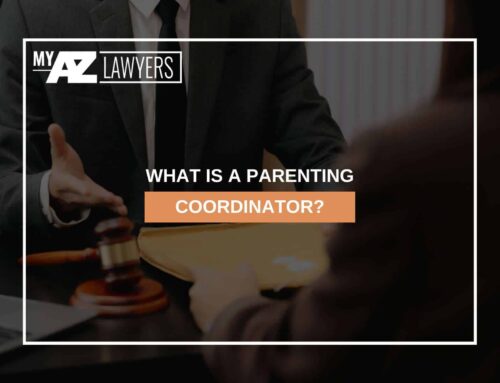Table Of Contents
Is Getting Married Really Worth It? Or Too Much Of A Legal Risk?
No one gets married with the intention of getting divorced, but about half of marriages turn out that way. Depending on what type of wedding you have, getting married can be quite costly. But getting divorced can be even more expensive. Divorce attorney’s fees and filing fees are just the start. Moving expenses and dividing into two households become necessary at some point after a divorce. You could be ordered to pay child support and spousal maintenance for a number of years, or you could need to bridge the gap if your ex is not ordered to pay this support to you. Failure to make these support payments can result in serious consequences like wage garnishments, driver’s license and passport restrictions, and even jail time. So if you’re on the fence between marriage and long-term partnership, read on to learn more about potential factors that could affect this decision. If you want more information about your options, or if you are ready to end a marriage that isn’t working out, you should speak to an experienced family law attorney. For your free consultation with a family law lawyer practicing in Phoenix and Tucson, Arizona, call 480-470-1504.

Community Property
When two spouses divorce, splitting up assets- and debts- can be a contentious issue. If the spouses can reach an agreement out of court, they can divide their marital property in any way they see fit. But if they can’t reach an agreement, it will be left to the judge assigned to the case to determine how their marital estate should be divided. In Arizona, a judge must divide property using community property law. Arizona’s law defining community property is A.R.S. § 25-211. In community property states, everything acquired during the marriage belongs to both spouses equally should they ever file for divorce. Property acquired by gift, devise or descent is the separate property of the recipient spouse. Property acquired before the marriage and after a petition for dissolution of marriage, legal separation, or annulment has been filed is also separate property.
People often underestimate just how many of their assets will count as community property if they ever do get divorced. Even if your paycheck goes straight into your own personal and separate bank account throughout your marriage, your spouse can demand access to that information and a community property share during property division. Anything you spent your income on during the marriage could be at risk of property division as well. One major asset that some spouses forget about for property division is their retirement savings accounts. You might never actually manually transfer funds from your bank account to your retirement savings, and instead rely on automatic deductions from your paychecks. But just like the rest of your income, these contributions become community property if they happen during the marriage. They can be more complicated to split up than other types of assets, especially if you made contributions to your retirement before you were married. It must be done using a special type of form called a QDRO, or a Qualified Domestic Relations Order. This type of order is difficult to complete without the proper legal knowledge and experience. To speak with a skilled Arizona family law attorney about how your retirement savings and other assets could be split in divorce, call 480-470-1504 for your free consultation with our firm.
Children In Common
Getting married has a relatively small effect on any family law issues you may have regarding children in common. A parent can request child custody and child support regardless of the parents’ marital status. Plenty of parents work their way through the family law system without ever having been married. One of the only ways that getting married can impact a custody situation is if there is a paternity dispute. Establishing paternity is often the first step in establishing child custody and support orders if the parents were never married. There are a few ways to show who a child’s father is in court. If the parents were married when the child was born or 10 months before or after the child was born, this creates a presumption of paternity. If the father is present at birth, he can sign the birth certificate to establish paternity. Both parents can sign an affidavit later on agreeing that the father has paternity of the child. Otherwise, paternity can be established using a DNA test.
Establishing paternity as a groundwork for custody and child support may be the first step in a long family law journey.
Becoming A Legal Household
When two people marry, they become a household in the eyes of the law, which has certain implications. Married couples can enjoy the convenience of filing joint tax returns, as well as tax benefits to go with it. It is easier for a legal spouse to take care of emergency situations on their partner’s behalf, such as visiting them in the hospital and potentially making medical decisions, which is especially true if that spouse has not made an estate plan.
You can use strategic estate planning to designate your partner as your choice for these types of decisions whether or not you choose to get married. Your will is the baseline for your estate plan. With it, you can designate your partner as the beneficiary of your estate, the executor of your estate, or even the legal guardian of your children. It isn’t always the most efficient way to leave your assets to an unmarried partner- there may be other instruments that allow you to avoid tax liability, probate court, and other costly delays and obstacles. But perhaps just as important, or even more important, are the instruments you can use to designate your partner as the authority for your medical decisions if you ever lose the capacity to do so yourself. You can use a living will to indicate whether you would like to receive medical treatments like dialysis, ventilation, tube feeding, etc. If you want to assign this responsibility to your partner, you can use a health care power of attorney so doctors know who to turn to when your medical treatments are in question.
You may have other concerns about legally becoming a household, especially with changes that may come to our country’s laws in the coming months. If you want to review your situation with a full-service family law firm so you can learn more about how family law and estate planning issues interact, call 480-470-1504 for your free consultation with our firm.
Experienced Arizona Attorneys For A Variety Of Family Law Issues
If you’re contemplating getting married, you may be reading through these issues and wondering if marriage is really worth it, or maybe if you should ask for a prenuptial agreement. If you’re already married, you may be wondering if it is worth it to stay in the marriage or if you can shoulder the costs of filing for divorce. The best way to get clarity on your issues is to review your situation with a skilled family law lawyer. Our office offers free consultations by phone with experienced family law professionals in Phoenix and Tucson. Get started today by calling 480-470-1504. Don’t hesitate to contact us today!

MY AZ LAWYERS
Email: [email protected]
Website: www.myazlawyers.com
Mesa Location
1731 West Baseline Rd., Suite #100
Mesa, AZ 85202
Office: 480-448-9800
Phoenix Location
343 West Roosevelt, Suite #100
Phoenix, AZ 85003
Office: 602-609-7000
Glendale Location
20325 N 51st Avenue Suite #134, Building 5
Glendale, AZ 85308
Office: 602-509-0955
Tucson Location
2 East Congress St., Suite #900-6A
Tucson, AZ 85701
Office: 520-441-1450
Avondale Location
12725 W. Indian School Rd., Ste E, #101
Avondale, AZ 85392
Office: 623-469-6603











